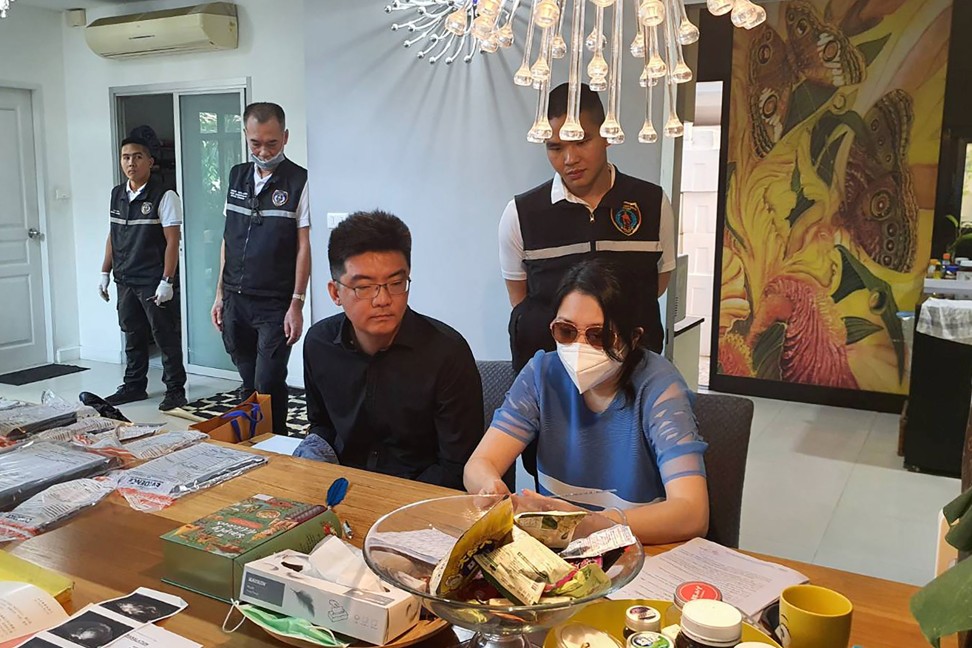
Thailand to probe Chinese links to illegal surrogate birth services
- Alleged ringleaders, Chinese couple Ran Zhao and Su Yingting, were arrested during police raid
- Operation also uncovered eight surrogate mothers, a 22-day-old baby and a four-month-old baby

Thailand has ordered an investigation into illegal surrogate birth services be extended to China after raids this week netted two alleged Chinese ringleaders.
Police Major General Torsak Sukvimol said Prime Minister Prayuth Chan-ocha ordered police to find the babies born under the surrogacy operation and determine whether human trafficking gangs were involved.
“He’s concerned that the babies could be in the hands of human organ-selling gangs,” said Torsak, who is deputy commissioner of the Central Investigation Bureau.
Police conducted raids on Thursday in 10 locations in Bangkok and two provinces, arresting two Chinese nationals and six Thais suspected of involvement in the ring.

Thailand in 2015 banned commercial surrogacy for foreigners.
The alleged gang leaders are a Chinese couple, Ran Zhao and his wife Su Yingting. They are charged with committing a serious crime related to transnational crime organisations, providing commercial surrogacy services and recruiting women to act as surrogates.
The 2015 law says that anyone involved in commercial surrogacy faces up to 10 years in prison and a fine of up to 200,000 baht (US$6,400).
Torsak said the raids also uncovered eight surrogate mothers, a 22-day-old baby and a four-month-old baby.
He said at least one baby was born in Thailand because the spread of a new virus in China stopped the surrogate mother from flying there for delivery.
Torsuk said after the 2015 law was implemented, the surrogacy operation – which previously had conducted the complete birth process in Thailand – changed to have the embryos implanted in neighbouring Laos and Cambodia, and then have the pregnant surrogate mothers move to Thailand before going to China in the eighth month of pregnancy to deliver the babies there.
He said each surrogate mother earned 300,000-400,000 baht (US$9,600 to US$12,800) per baby and 500,000-600,000 baht (US$16,000 to US$19,200) in the case of twins.